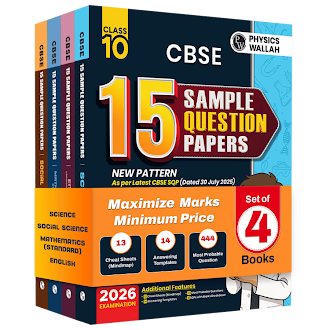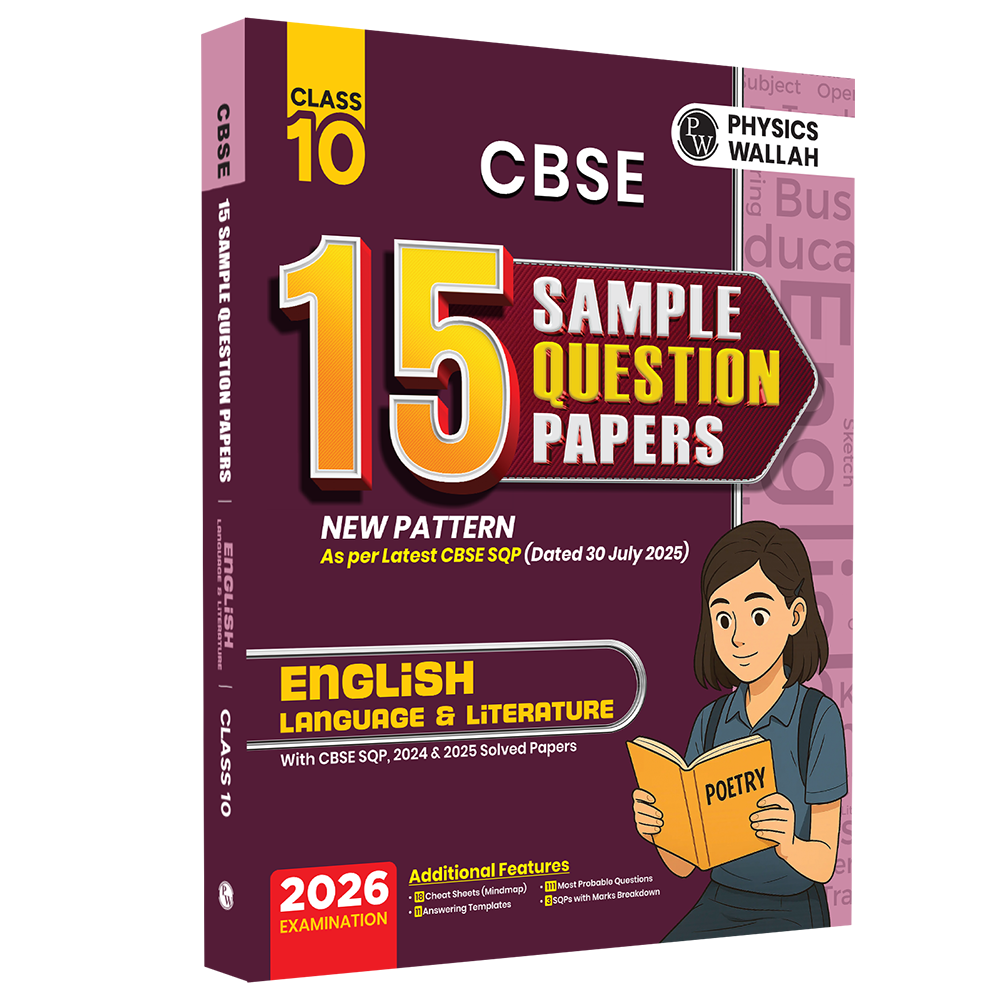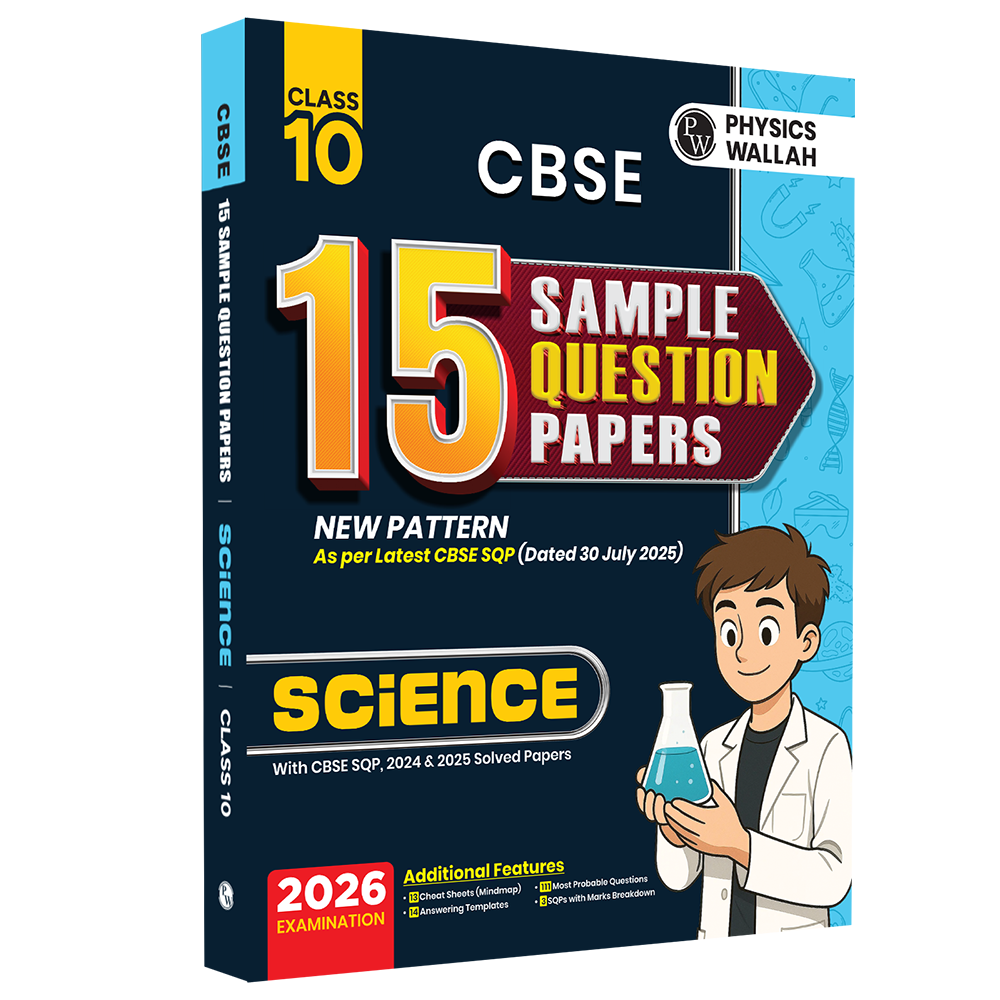CBSE Class 10 Science Syllabus 2024-25 Board Exams

CBSE Class 10 Science Syllabus 2024-25 Board Exams: Students who are studying in CBSE class 10 must go through Class 10 Science Syllabus 2024-25 in this article. Class 10 Science Syllabus 2024-25 includes chapters such as Chemical Substance – Nature and Behaviour, World of Living, Natural Phenomena, Effects of Current, and Natural Resources. Students need to study all the topics included in these chapters to secure a good score in the board examination. Students need to prepare and follow a proper study plan to complete the Class 10 Science Syllabus 2024-25. By going through Class 10th Science Syllabus 2024-25 students will be able to understand the subject more deeply.
NCERT Syllabus for Class 10 Science PDF
Students can check and download NCERT Syllabus for Class 10 Science PDF below. Students can plan their preparation strategy by understanding the Class 10th Science Syllabus. They must prepare the study plan by allocating sufficient time to each chapter of the Class 10th Science Syllabus. Click on the below link to download NCERT Syllabus for Class 10 Science PDF.
NCERT Syllabus for Class 10 Science PDF
CBSE Class 10 Science Syllabus 2024-25 Board Exams
Students can check the chapter-wise Class 10 Science Syllabus 2024-25 in the table below. Class 10th Science Syllabus 2024-25 includes five chapters such as Chemical Substance – Nature and Behaviour, World of Living, Natural Phenomena, Effects of Current, and Natural Resources. Check the topics included in these chapters below.
|
Unit |
Chapter |
Topic |
|
1 |
Chemical Substance – Nature and Behaviour |
|
|
2 |
World of Living |
|
|
3 |
Natural Phenomena |
|
|
4 |
Effects of Current |
|
|
5 |
Natural Resources |
Our Environment |
Class 10 Science Syllabus 2024-25 for Chemical Reactions and Equations
Chemical Reactions and Equations is the topic of the first chapter of Class 10 Science Syllabus 2024-25 i.e., Chemical Substance – Nature and Behaviour. This chapter includes subtopics such as Balanced Chemical Equation, Implication of a Balanced Chemical Equation, etc. The chapter focuses on the concept of balancing equations and includes information about the reactants, products, and their physical states in a complete chemical equation.
|
Class 10 Science Syllabus 2024-25 for Chemical Reactions and Equations |
|
Chemical Equation |
|
Balanced Chemical Equation |
|
Implication of a Balanced Chemical Equation |
|
Types of Chemical Reactions |
Class 10 Science Syllabus 2024-25 for Acids, Bases, and Salts
Acids, Bases, and Salts topic of Class 10 Science Syllabus 2024-25 includes sub-topics such as Definition in Terms of Furnishing of H+ and OH- ions, Properties and Uses of Sodium Hydroxide, etc. This chapter includes different reactions and methods to differentiate between acids and bases.
|
Class 10 Science Syllabus 2024-25 for Acids, Bases, and Salts |
|
Definition in Terms of Furnishing of H+ and OH- ions |
|
General Properties |
|
Examples and Uses |
|
Concept of pH Scale |
|
Properties and Uses of Sodium Hydroxide |
Read More: NCERT Solutions for Class 10 Science, Books for Science
Class 10 Science Syllabus 2024-25 for Metals and Non-Metals
Metals and Non-Metals come under chapter 1 of the CBSE Science Syllabus. This topic includes various sub-topics such as Properties of Metals and Non-metals, Formation and Properties of Ionic Compounds, etc. Metals and Non-Metals explain the physical and chemical properties of elements classified as metals and non-metals.
|
Class 10 Science Syllabus 2024-25 for Metals and Non-Metals |
|
Properties of Metals and Non-metals |
|
Reactivity Series |
|
Formation and Properties of Ionic Compounds |
|
Basic Metallurgical Processes |
|
Corrosion and its Prevention |
Class 10th Science Syllabus for Carbon and Its Compounds
The Carbon and Its Compounds topic of the Class 10th Science Syllabus includes sub-topics such as Covalent Bonding in Carbon Compounds, Differences Between Saturated and Unsaturated Hydrocarbons, etc. This topic includes information for a wide range of compounds that carbon can form due to its tetravalency and the property of catenation.
|
Class 10th Science Syllabus for Carbon and Its Compounds |
|
Covalent Bonding in Carbon Compounds |
|
Versatile nature of Carbon |
|
Nomenclature of carbon Compounds |
|
Differences Between Saturated and Unsaturated Hydrocarbons |
|
Ethanol and Ethanoic Acid |
Check out: CBSE New Pattern Sample Question Papers Class 10 Science
Class 10th Science Syllabus for Life Processes
The topic of Life Processes includes sub-topics such as Excretion in Plants and Animals, Basic concepts of Nutrition, Transportation, etc. This topic identifies movement as a characteristic of life and highlights processes such as nutrition, respiration, material transport within the body, and waste excretion as crucial for sustaining life.
|
Class 10th Science Syllabus for Life Processes |
|
Living Being |
|
Basic Concept of Nutrition |
|
Respiration |
|
Transportation |
|
Excretion in Plants and Animals |
Class 10th Science Syllabus for Control and Coordination
The Control and Coordination topic of the Class 10th Science Syllabus includes sub-topics such as Introduction to Plants Hormones, Control and Coordination in Animals, Voluntary, Involuntary and Reflex Actions, etc. Candidates can check the subtopics in the table below.
|
Class 10th Science Syllabus for Control and Coordination |
|
Tropic Movement in Plants |
|
Introduction to Plants Hormones |
|
Control and Coordination in Animals |
|
Nervous System |
|
Voluntary, Involuntary and Reflex Actions |
|
Chemical Coordination |
|
Animal Hormones |
Check out: CBSE Class 10th Sample Papers
Class 10th Science Syllabus for How do Organisms Reproduce
The topic How do Organisms Reproduce includes sub-topics such as Child Bearing and Women's Health, Reproduction in Plants and Animals, etc. Candidates can check the sub-topics of this topic in the table below.
|
Class 10th Science Syllabus for How do Organisms Reproduce |
|
Reproduction in Plants and Animals |
|
Reproductive Health |
|
Safe Sex Vs HIV/AIDS |
|
Child Bearing and Women's Health |
Class 10th Science Syllabus for Heredity and Evolutions
The topics Heredity and Evolutions of Class 10th Science Syllabus include sub-topics such as Brief Introduction to Sex Determination, Mendel’s Law of Inheritance, etc. Students of class 10 can check the sub-topics of Heredity and Evolutions in the table below.
|
Class 10th Science Syllabus for Heredity and Evolutions |
|
Heredity |
|
Mendel’s Law of Inheritance |
|
Brief Introduction to Sex Determination |
|
Basic Concept of Evolution |
Check out: CBSE Class 10th Question Banks
Class 10th Science Syllabus for Reflection and Refraction
The topic Reflection and Refraction of Class 10th Science Syllabus includes sub-topics such as Reflection of Light at Curved Surfaces, Refraction of Light, etc. This chapter includes the refraction of light through substances like water and prism. Students can check the sub-topics included below.
|
Class 10th Science Syllabus for Reflection and Refraction |
|
|
9.1 |
Reflection of Light at Curved Surfaces |
|
9.2 |
Curved Mirror |
|
9.3 |
Refraction of Light |
Class 10th Science Syllabus for Human Eye and the Colourful World
The topic Human Eye and the Colourful World of Class 10th Science Syllabus includes sub-topics such as Defects of Vision and Their Correction, Dispersion of White Light by a Glass Prism, Refraction of Light through Prism, etc. Students can check the sub-topics below.
|
Class 10th Science Syllabus for Human Eye and the Colourful World |
|
The Human Eye |
|
Defects of Vision and Their Correction |
|
Refraction of Light through Prism |
|
Dispersion of White Light by a Glass Prism |
|
Atmospheric Refraction |
|
Scattering of Light |
Check out: CBSE Sample Question Papers Class 10 Science for 2025 Exam
Class 10th Science Syllabus for Electricity
The topic Electricity of CBSE Science Class 10 Syllabus includes sub-topics such as Potential difference and Electric Current, Series Combination of Resistors, Inter Relation Between P, V, I, R, etc. Students can check the topic-wise subtopics in the table below.
|
Class 10th Science Syllabus for Electricity |
|
Potential difference and Electric Current |
|
Ohm’s Law |
|
Resistance and Resistivity |
|
Series Combination of Resistors |
|
Heating Effect of Electric current |
|
Electric Power |
|
Inter Relation Between P, V, I, R |
Science Class 10 Syllabus for Magnetic Effects of Electric Current
The topic of Magnetic Effects of Electric Current includes sub-topics such as Direct Current and Alternating Current, Electromagnetic Induction, Direct Current and Alternating Current, etc. Students can check the topic-wise sub-topics in the table below.
|
Science Class 10 Syllabus for Magnetic Effects of Electric Current |
|
Magnetic Field |
|
Fleming’s Left Hand Rule |
|
Electromagnetic Induction |
|
Fleming’s Right Hand Rule |
|
Direct Current and Alternating Current |
|
Domestic Electric Circuit |
Check out: CBSE Class 10th Previous Year Papers
Class 10th Science Syllabus for Our Environment
The topic of our Environment includes sub-topics such as Biodegradable and Non-biodegradable Substances, Waste production and Their Solution, etc. This topic also covers the formation of food chains as an integral part of life. This topic will help the students to understand the environmental harm caused by human activities, guiding to pollution and global warming. Students can check the sub-topics in the table below.
|
Class 10th Science Syllabus for Our Environment |
|
Eco System |
|
Environmental Problems |
|
Ozone Depletion |
|
Waste production and Their Solution |
|
Biodegradable and Non-biodegradable Substances |
Class 10th Science Syllabus Preparation Tips
Students may follow the below preparation tips to secure good marks in the board exam.
Master Key Concepts: Students should focus on understanding important concepts in Physics (like light and electricity), Chemistry (like acids and bases), and Biology (like life processes). It's essential to know how these concepts apply to real-life situations.
Create Concept Maps: Students can use concept maps to connect different topics within Physics, Chemistry, and Biology. This visual tool helps organize information and see how topics relate to each other.
Practice Numerical Problems: For Physics and Chemistry, students should practice solving numerical problems. They need to focus on using formulas correctly and understanding the steps involved in calculations.
Regularly Revise Important Diagrams: Students should pay attention to diagrams in Biology i.e., the human heart or plant cells and in Physics i.e., ray diagrams for lenses. Practicing drawing and labeling them reinforces understanding.
Conduct Practical Experiments: If students have access to a lab, participating in experiments is beneficial. If not, watching online demonstrations or simulations can help them see how concepts are applied in real life.
Make Flashcards for Definitions: Creating flashcards for important terms and definitions in Chemistry (like chemical reactions) and Biology (like types of reproduction) can help students enhance their memory through regular review.
Check out: CBSE Class 10th Revision Books
Class 10 Science Syllabus 2024-25 FAQs
Q1. What are the key topics in Physics for Class 10?
Ans. In Physics, students will learn about light, electricity, the magnetic effects of current, and sources of energy. Understanding these topics helps students see how physical laws apply to the world around them.
Q2. What will students study in Chemistry?
Ans. Chemistry topics include chemical reactions, acids, bases, salts, and the properties of metals and non-metals. Students will also learn about carbon and its compounds, which are important for understanding organic chemistry.
Q3. What are the main areas of focus in Biology?
Ans. In Biology, students will study life processes, control and coordination in animals and plants, reproduction, heredity, and human health. These topics help students understand living organisms and their functions.
Q4. What is the importance of studying diagrams in the syllabus?
Ans. Diagrams are essential in science because they help students visualize complex concepts. Students will learn to draw and label diagrams related to human anatomy, plant structures, and physical phenomena, enhancing their understanding.












